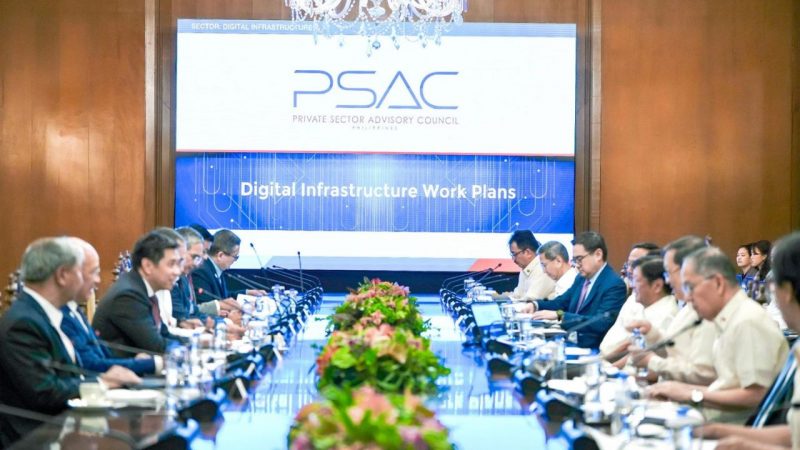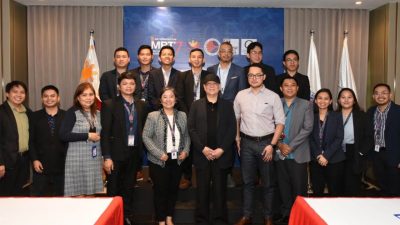Calls for greater government investment and policy change
The Private Sector Advisory Council (PSAC) laid down necessary steps to uplift the country’s internet infrastructure and attain its digitalization goals in its April 19 meeting with President Ferdinand R. Marcos Jr., the fifth interface between the Chief Executive and the private sector body.
Sabin Aboitiz, PSAC Lead Convenor and Aboitiz Group President and CEO, presided over the meeting alongside Henry Aguda, President and CEO of UnionDigital Bank and leader of PSAC’s digital infrastructure sector. Joining them were Ernest Cu, President and CEO of Globe, and Al Panlilio, former President and CEO of PLDT-Smart.
“By aligning the private sector’s strengths with the government’s supportive mechanisms, we are setting the stage for a rapid and sustainable enhancement of our nation’s connectivity,” Aboitiz remarked.
The council outlined strategic steps to address urgent needs identified in the recent World Bank report that placed the Philippines at the lower end of the spectrum in the 2023 International Telecommunication Union (ITU) ICT Development Index.
During his “State of the Internet” presentation, Cu shared PSAC’s proposed legislative and policy measures to support the digital infrastructure sector. These measures include streamlining the permitting process, energizing telco towers, rationalizing spectrum user fees, and amending the national building code to exempt telco and ICT facilities from lease fees in buildings and other developments.
“Telco and the internet must be widespread, robust, and meaningful, enabling full participation in the digital economy. Currently, policy gaps hinder expansion into rural and underserved areas,” said Cu.
Government’s digital ambitions vs investments
The government has set ambitious connectivity targets, aiming to increase the internet penetration rate to 65% from 33% and make it more affordable to Filipinos. However, government spending on internet infrastructure has been traditionally on the low end, with the Department of Information and Communications Technology’s total funding for internet infrastructure at Php7.6 billion for six years from 2018 to 2024.
This is dwarfed by private sector spending. Globe alone has invested Php265 billion in capital expenditure and Php236 billion in operational expenses in the past three years to enhance its network capabilities to improve the country’s digital infrastructure.
PSAC is optimistic that the government will positively respond to its recommendation to set aside at least Php240 billion to enhance internet infrastructure.
It hopes to explore a commercial partnership between the government and the private sector to build 35,000 new cell sites. PSAC also emphasized mandating the full and consistent implementation of Executive Order No. 32, which the president issued last year to streamline and expedite the permitting process for telco infrastructure, which had been a roadblock to network expansion. These are essential steps toward achieving comprehensive national coverage by 2028.
PSAC also requested at least Php60 billion in annual allocation for the Department of Information and Communications Technology (DICT) to lease towers, build last-mile facilities, and optimize existing telco facilities to provide internet access in 125,000 public facilities, including schools, hospitals, and health centers, over a four-year period.
Aguda highlighted the importance of digital infrastructure in promoting economic growth, especially in terms of creating employment opportunities in the digital sector. The Information Technology and Business Process Management (IT-BPM) industry aims to create 1 million jobs in the digital field by 2028.
“There must be collaborative efforts between government agencies, particularly the Office of the President and DICT, and the private sector, to equip the workforce with essential competencies for the digital era,” Aguda explained. “We advocate for a Presidential directive to ensure that all relevant agencies are fully aligned in executing all training and job promotion activities to achieve this ambitious job creation target.”
PSAC’s proactive approach aims to position the Philippines as a leading digital economy in Southeast Asia, with strategic enhancements to the country’s internet infrastructure ensuring that all Filipinos benefit from digital advancements.
For more information about Globe, visit www.globe.com.ph.







